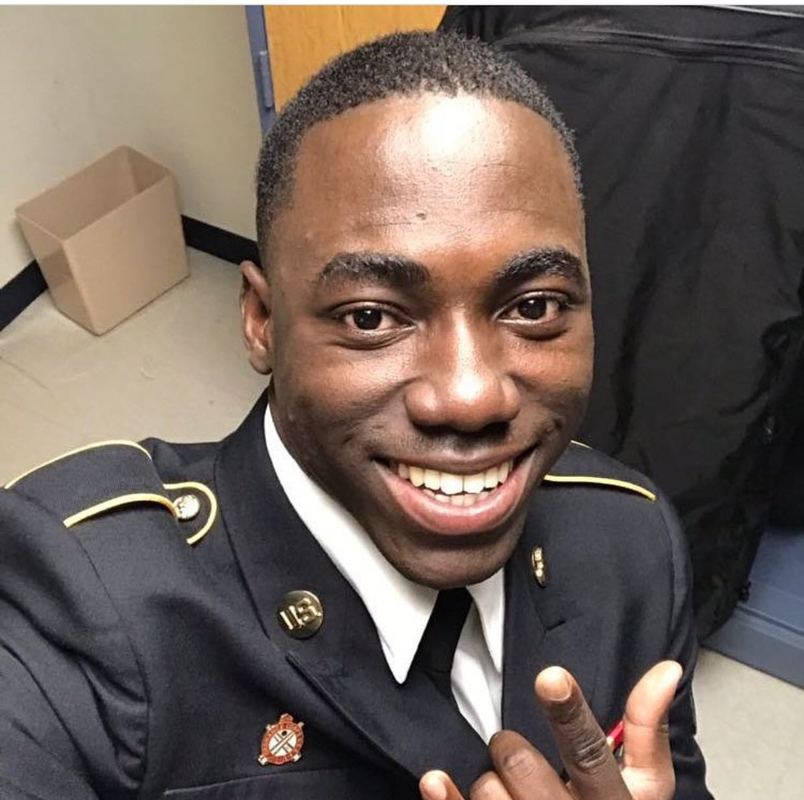|
All through this long holiday period, I have been thinking of people who set an example for the rest of us.
Now I wish I had not found this one. In the final week of an unsettling year, a young soldier – an immigrant, yes – risked his life once, twice, three times, four times, to save people in a horrendous fire in the Bronx. And then he went back a fifth time and did not survive. A week before, I had filed my final post of the year -- a reminder (to myself) to light a candle rather than curse the darkness. (Whole lot of cursing going on.) Emmanuel Mensah from Ghana personified the selflessness we all like to think we could demonstrate, if we had to….if it presented itself…. I came up with other examples, people I actually know. My friend Mendel of Jerusalem is a rabbi and family therapist (and writer, and runner, and Mets fan from Queens) who volunteers as a counselor with EMT units. We met for lunch on Long Island during his home visit. He told me that while trained medics deal with the physical part of a crisis, Mendel finds anybody who needs support. He never knows what language or accent he will hear when he takes somebody’s hand. They could be Jewish or Muslim or Christian. He does not care. He ministers. He lights the candle. Then I thought about my wife’s uncle Harold from Maine. He recently turned 95 and can no longer have home-made fish chowder and pie waiting for us when we drive up U.S. 1. Harold says he would like to be “with family” – aging, scattered -- but his “family” is right there in Bath, where he has lived most of his life. There is Ace, a surrogate son who returns regularly from the Southwest, and Cookie, a surrogate daughter who drives up from southern New England; they have skillfully handled the complicated details of a loved one who lives a very long time. There is Eric, whose family has been intertwined with Harold and his late wife Barbara. There is Martha, who drives Harold to the doctor even as she works full-time. There is Ann, the friend and nurse who has given diligent counsel. There is Germane and her daughter Diane, and Rich and Suzanne, and Bill, an in-law, and Kristi, retired Army colonel and nurse, who watched over Harold in a lovely retirement complex, as long as it was feasible. We have witnessed the best example of a classic American town, actually bustling with work (building warships on the Kennebec River, which Harold dredged in 1941) and the good will of people who know who they are, where they are from. But let’s double back to Emmanuel Mensah, from Ghana. The Times says he joined the Army National Guard and recently passed basic training. He planned to go on active duty, but before he did, there was a fire in the building. At the end of a dark year, I visualized Emmanuel Mensah’s military training – the preparation to protect people, to back up your buddies, to serve. In the months to come, I count on that developed impulse to follow rules. I suspect Emmanuel Mensah’s fine instincts as a human being, from his homeland of Ghana, were encouraged by the American military: when bad stuff is happening, go toward it. Emmanuel Mensah, an immigrant, saved lives in his final minutes on this earth. In the new year, his example shines.
Ed Martin
12/31/2017 02:33:25 pm
Thank you George for helping us all appreciate this young man’s bravery and selflessness in a world where we too frequently witness that.
Gene Palumbo
1/1/2018 12:15:22 am
Thanks for this, George, and for all the others that preceeded it during the past twelve months.
Mendel
1/1/2018 01:59:49 am
Please, George.
Brian Savin
1/1/2018 07:32:49 pm
Glad you recognized Emmanual, George. It's a great, sad story deserving of focus. The early NY Post story was picked up by the Trump team (Jason Miller) for no reason other than deserving of appreciative respect and honor. God bless such great kids. We have hope...albeit at a very high price. Best in the New Year. Comments are closed.
|
Categories
All
|










